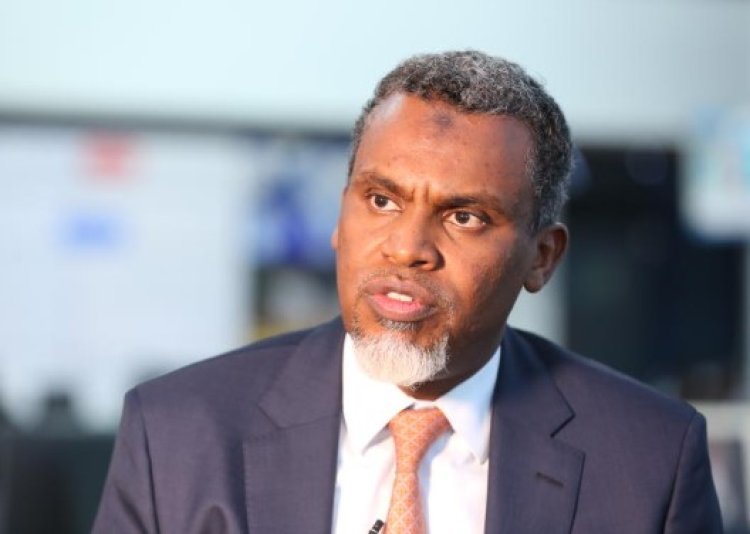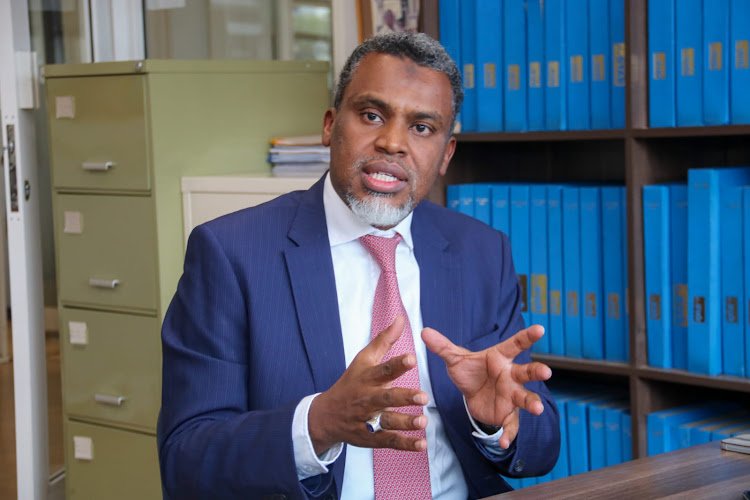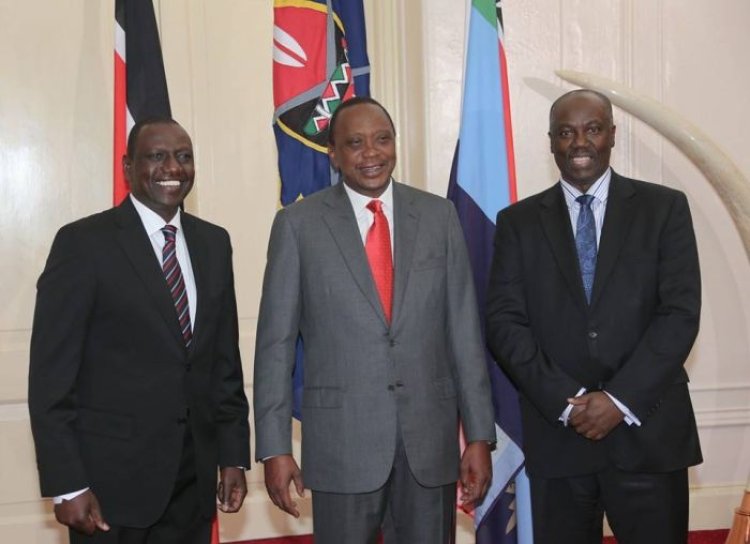Noordin Haji Set For Comeback At NIS After Ruto Nomination
Haji will make his comeback to the NIS after his six-year term as the DPP.

President William Ruto, on Tuesday, May 16, nominated Noordin Haji for the position of the Director-General of the National Intelligence Service (NIS).
In a statement signed by Head of Public Service and Chief of Staff, Felix Koskei, Haji will make his comeback to the NIS after his six-year term as the Director of Public Prosecutions (DPP).
"It is notified that His Excellency the President has, in accordance with Section 7 (1) of the National Intelligence Service Act, nominated Mr Noordin Haji, CBS, for appointment as the Director-General of the National Intelligence Service (NIS).

Immediate former Director of Public Prosecution (DPP) Noordin Haji. /FILE
"Noordin Haji returns to the National Intelligence Service after a six-year sojourn as the Director of Public Prosecutions. Before becoming the nation's apex public prosecutor, Mr Haji served as the Deputy Director of the Counter Organised Crime Unit within the National Intelligence Service (NIS)," the statement read in part.
Notably, Ruto did not nominate Haji's immediate replacement as DPP. Haji holds Bachelor of Laws (LL.B) and Master of Laws (LL.M) degrees from the University of Wales, Cardiff.
Additionally, he holds a second Masters Degree in National Security Policy with Merit (MNSPO) from the Australian National University.
He was admitted to the Bar in 1999 and thereafter joined the Public Service in January 2000 as a State Counsel at the Attorney General's Office.
On his part, Major-General (Rtd) Philip Wachira Kameru, EGH, the outgoing Director-General, was appointed in September 2014 after an illustrious military career, by former President Uhuru Kenyatta.
He has risen through the ranks to the position of Director of Military Intelligence in the Kenya Defence Forces (KDF). In that position, he provided outstanding leadership that earned him international accolades.
"Under Major-General (Rtd) Kameru's watch, Kenya's premier civilian intelligence agency has made monumental strides in the fight against terrorism, transnational crimes and other major threats to our national and regional security.
"Maj-Gen (Rtd) Kameru has been at the forefront of guiding special security assignments and multi-agency coordination that have made Kenya, and indeed the region, more secure," added the statement.
Ruto's action is to facilitate the transition of the apex leadership of our National Intelligence Service, ahead of Kameru's retirement.
The Head of State transmitted the nomination of Haji to the National Assembly for consideration by Parliament, in fulfilment of the legal requirements set out under the Constitution and the National Intelligence Service Act.
Haji is expected to be vetted by Parliament's Defence and Foreign Relations Committee after which the President will officially appoint him to the position.
What Is NIS?
The National Intelligence Service which was previously known as the National Security Intelligence Service (NSIS) is both the (national) domestic and foreign intelligence agency of Kenya.
It had its origins in the "Special Branch" a department of the national police that was created in 1952 under the British administration. Among other things it provided intelligence for was during the Mau Mau uprising.


 admin
admin 




